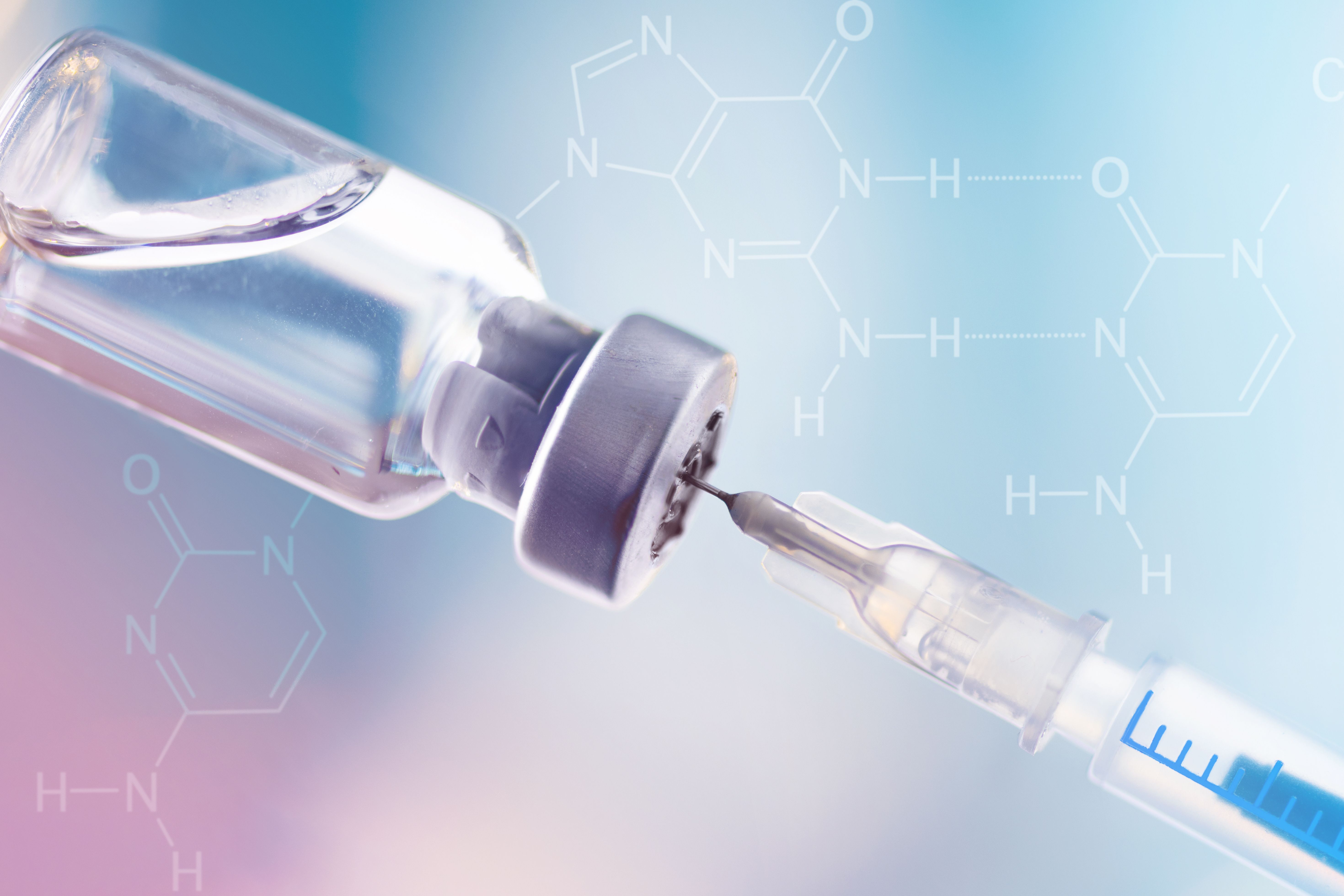- Bone Health
- Immunology
- Hematology
- Respiratory
- Dermatology
- Diabetes
- Gastroenterology
- Neurology
- Oncology
- Ophthalmology
- Rare Disease
- Rheumatology
AMCP Posters Tackle Interchangeability and Medicaid, Factors Driving Biosimilar Access
Two posters from the Academy of Managed Care Pharmacy (AMCP) annual meeting explore how an interchangeable insulin glargine biosimilar plays into Medicaid budgets and the top factors driving access to biosimilars.
Two posters from the Academy of Managed Care Pharmacy (AMCP) annual meeting explore how an interchangeable insulin glargine biosimilar plays into Medicaid budgets and the top factors driving access to biosimilars.
Image credit: Inna Dodor - stock.adobe.com

Interchangeable Insulin and Medicaid1
A poster examining the impact of the first interchangeable biosimilar for insulin glargine on spending and utilization of state Medicaid programs found the interchangeability label helped reverse a declining market share for insulin glargine biosimilars, helping to generate significant savings for the programs.
However, the researchers noted that utilization of biosimilars varied widely across states, suggesting the need for more biosimilar education and financial incentives to promote their adoption. Additionally, 4 states, and Puerto Rico, completely restrict interchangeability.
The first interchangeable insulin glargine biosimilar (Semglee) became available to Americans in July 2021.
In the study, the researchers extracted Medicaid State Drug Utilization Data for all insulin glargine products between 2020 and 2022. The reference products for the study were Lantus and Toujeo, and the biosimilars were Semglee, Basaglar, and unbranded insulin glargine-yfgn.
Results showed that the biosimilars had 48% market share by Q1 2020, presenting with a downward trend of 2.2% per quarter as patients switched to reference products (P < .01). Following the introduction of an interchangeable option, the trend reversed, with biosimilar market share growing by 2.8% per quarter (P < .01).
Market entry of an interchangeable biosimilar generated $60.6 million for Medicaid programs between Q4 2021 and Q4 2022. The use of interchangeable biosimilars across Medicaid plans ranged from 0% to 93% in quarterly market share (mean [SD], 9.1% [17.9%]). Six states reported no use of the biosimilar.
Factors Driving Biosimilar Access2
A poster from Precision Value & Health evaluated the top factors driving access to biosimilars. The study was conducted in response to slow uptake rates for several biosimilar categories, such as infliximab and ranibizumab, in the US.
In October 2023, the researchers conducted a survey among health plan stakeholders recruited from a database of market-access decision-makers. Twenty-five people responded to the survey.
Results showed that a majority of respondents preferred a low wholesale acquisition cost (WAC), low-rebate strategy over a high-WAC, high-rebate strategy for new biosimilar contracting (84% vs 16%). Additionally, 64% said they were likely to restrict a biosimilar covered under the pharmacy benefit (infliximab, insulins, and adalimumab) compared with the medical benefit (rituximab, ranibizumab, pegfilgrastim, bevacizumab, filgrastim).
When asked about indications that yield the best access restrictions for biosimilars compared with their reference products, cancer indications and pediatric indications were the most reported (32% each). When considering market factors, a pharmacy benefit manager contract for the reference product was cited as the most likely reason for restrictions for biosimilars (36%). The authors speculated as reference product shares are expected to decline, the impact of these factors may weaken in the future.
Although 96% of respondents reported being confident in switching from a reference product to a biosimilar, the operational barrier that was most to blame for restricted access to biosimilars was the need for pharmacies to contact prescribers for a biosimilar (44%), supporting the idea that interchangeable designations could improve patient access to these lower-cost biologics.
References
1. Devine J, Hanson K, Lim D. The impact of interchangeability on biosimilar insulin glargine use and spending in Medicaid. Presented at: AMCP 2024; April 15-18, 2024; New Orleans, LA. Poster E2.
2. Terrone CJ, Danielson D, Miller C. Factors driving biosimilar access among US health plans. Presented at: AMCP 2024; April 15-18, 2024; New Orleans, LA. Poster U13.
Cencora Analysis Shows Differences in Payer Coverage Between G-CSF Biosimilars
May 2nd 2024Data from a Cencora study showed some misalignment in payer coverage of granulocyte colony-stimulating factor (G-CSF) biosimilars, highlighting that while filgrastim biosimilars are often favored over the originator, reference pegfilgrastim still dominates over its biosimilars.
What AmerisourceBergen's Report Reveals About Payers, Biosimilar Pricing Trends
May 28th 2023On this episode of Not So Different, Tasmina Hydery and Brian Biehn from AmerisourceBergen discussed results from a recent survey, that were also presented at Asembia 2023, diving into the payer perspective on biosimilars and current pricing trends across the US biosimilar industry.
Eye on Pharma: EU Ustekinumab Approval; New Golimumab Data; Evernorth Adds Humira Biosimilar
April 29th 2024The European Union gained a new ustekinumab biosimilar; Alvotech released positive results from a clinical trial evaluating a golimumab biosimilar and the reference products (Simponi and Simponi Aria), and Evernorth announced that it is set to cover an adalimumab biosimilar at zero cost to patients.
Pipelines and Preparation: How the US Can Prepare for More RA Biosimilars
April 16th 2023What can practices do to prepare for all the biosimilars to treat rheumatoid arthritis (RA) coming down the pipeline? And how can they ensure that the lower-than-anticipated adoption rates for infliximab biosimilars are not repeated? Robert Zutaut, RPh, from McKesson Provider Solutions, tackles all this and more on this episode of Not So Different.
The 6 Key Policy Factors to Ensure Biosimilar Market Sustainability
April 16th 2024Magnus Bodin, senior director and head of international access and policy at Biogen, presented warning signs for unsustainable biosimilar markets as well as key factors needed to create effective policies and future-proof biosimilar markets globally.
What Clinicians Need to Know About Using Biosimilars to Treat IBD
April 13th 2024A review article, intended to act as a guide for clinicians, summarizes the available infliximab and adalimumab biosimilars for treating inflammatory bowel disease (IBD) as well as others that are coming down the pipeline.
